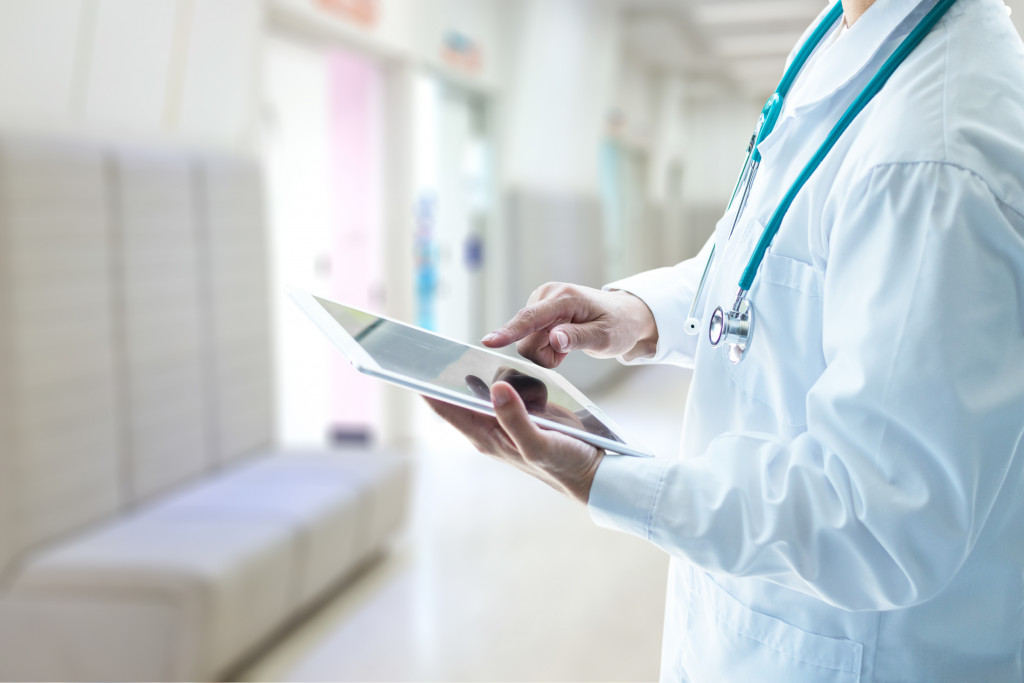Healthcare is undeniably an essential and ever-changing industry. As might be expected amid the COVID-19 crisis, research and technological trends have shifted into addressing this deadly virus. Such includes testing new vaccines to help prevent the spread, creating apps to determine early infection, and establishing “smart cities” that can respond better to future outbreaks.
With the accelerated breakthroughs happening brought about the COVID-19 pandemic, people, the healthcare industry, and the public safety community are now better equipped to face the “new normal” and respond better if such a similar disaster occurs. Thus, read on to know about the future trends in healthcare this 2021.
Technology: Healthcare Trends in 2021
Telehealth
Telehealth has been around for a number of years, but it has grown increasingly popular amid the Coronavirus outbreak. Telehealth has proven to be extremely useful for check-ups and treatment at a distance. It also helps save time and stress for both patients and physicians.
With telehealth, doctors can follow up on their patients virtually, significantly reducing the strain of scheduling a last-minute appointment. Furthermore, it addressed the public’s fear of going to hospitals for their doctor’s appointment amid COVID-19.
AI and Biotechnology
Artificial intelligence has proven to be useful in various industries. During the COVID-19 crisis, AI is extremely helpful in automating tasks such as resource management, facial recognition, and behavioral pattern detection. AI is efficient in finding medical records, designing treatment plans, and even drug creation.
It is undeniable that artificial intelligence will further help shape the future of healthcare. Even concerning environmental health, AI can help improve urban living with “smart cities”. When digital connectivity and data automation are used properly, people living near each other is better.
Improved Disaster Response
2020 is a year filled with more than enough share of national disasters. The year started with wildfires and carried on with the aggressive COVID-19 pandemic. The healthcare and public safety community have, against all odds, respond efficiently to these disasters.
The year 2021 will see an enormous improvement when it comes to emergency location acquisition. Apart from emergency vehicles having much better LED light bars, the 911 system could detect callers’ vertical location. This is very useful when the caller is located indoors in a building.

Wearables and Smart Devices
Thanks to wearables and smart devices, caregivers have a much clearer idea of their patient’s condition and can make modifications accordingly. With these digital accessories, healthcare providers can keep track of a patient’s every movement. This includes heart rate, sleep pattern, and calorie intake.
Through wearable devices, doctors can easily detect and also be notified of any unusual occurrence in the patient’s electrocardiogram patterns. Combining wearables with the Internet of Things, patients can also monitor their health and progress on their own devices.
Improved Data Science
It can be challenging to compress all the data gathered from a patient suffering from a chronic disease. But with the rapid improvement in predictive analysis and data science, healthcare professionals are provided easier access and deeper insights into a patient’s history.
These technological advancements help gather information about family history and ancestry. It further helps doctors determine whether their patient is at high risk of certain illnesses. This makes diagnosis much more effective than the traditional method of check-ups and follow-ups.
Virtual, Augmented, and Mixed Reality
Virtual and augmented reality has changed many lives of both physicians and patients. Projected to be a $5.1 billion market in 2025, VR and AR continue to be useful in training and surgery simulation and treatment and care for patients. In just a few years, virtual surgery would even be a reality.
This time, VR and AR help provide physicians with real-time access to information regarding their clients. With this, they can help make a more accurate diagnosis, especially during this time that in-person hospital check-ups are restricted, if not limited.
Genomics and Gene Editing
Breakthrough in genomics would greatly help create personalized medicine and therapies to fit a patient’s genetic profile. This technology makes treatment more effective, precise and helps as well in reducing unwanted side effects.
Genomics has also been used to create “lab on a chip”, a handheld device that can detect whether the Coronavirus infects a person. With this device, health professionals no longer have to rely on inaccurate indicators such as temperature and coughing.
With these amazing innovations to look forward to in 2021, we can only say that we are indeed living in a revolutionary time in healthcare and medicine.
